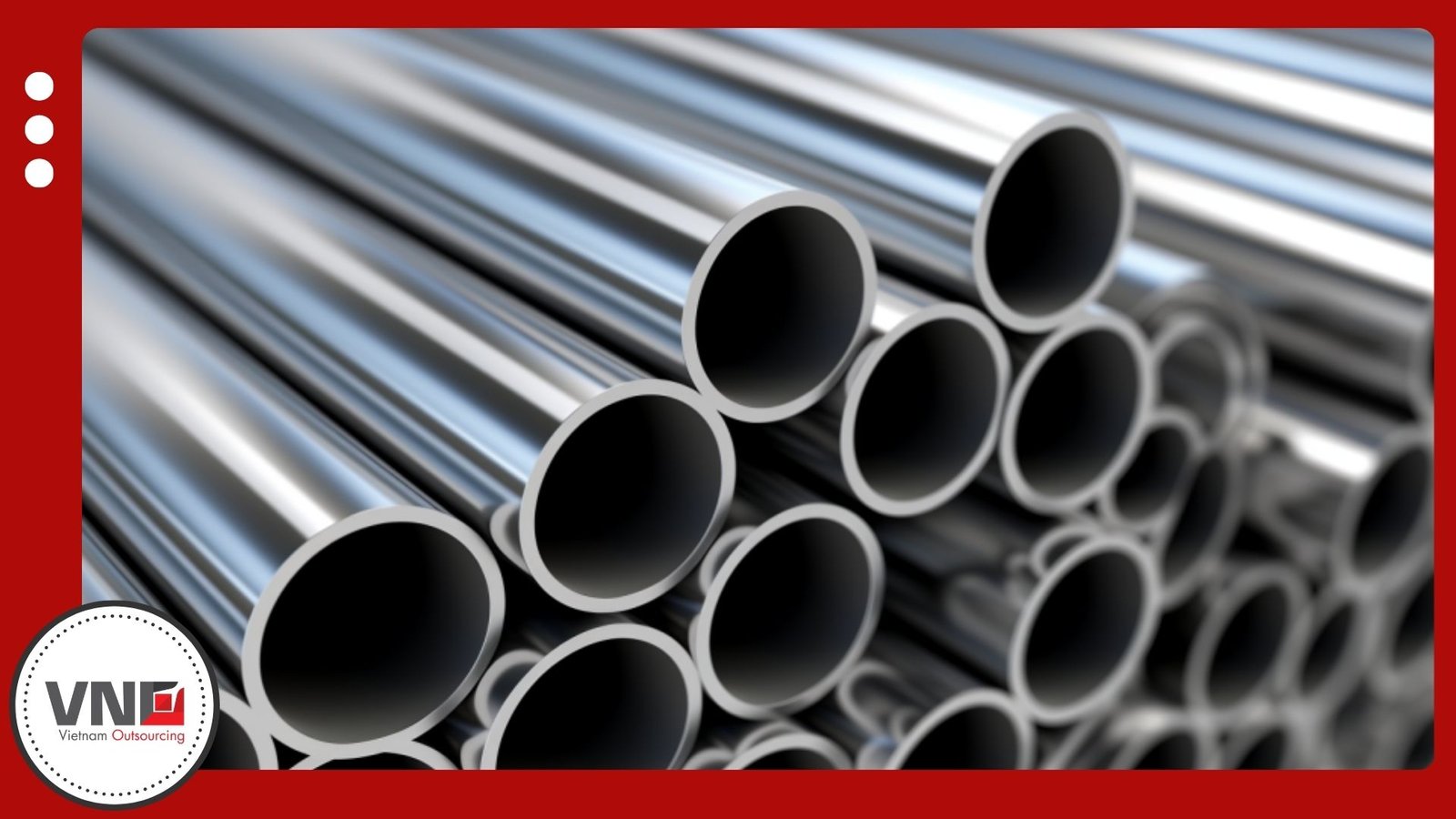Aluminum alloy combines aluminum with elements such as silicon, iron, copper, and magnesium. Because of its ductility and convenient melting point, it adapts well to industrial production.
It also resists corrosion, offers high strength, and polishes easily. Unlike many other metals, aluminum alloy keeps its appearance over time, which explains why industries rely on it in construction, architecture, and consumer goods.
In Vietnam, aluminum alloys play a central role in the country’s fast-growing manufacturing sector. As a “China+1” alternative, Vietnam offers cost efficiency, global compliance, and reliable capacity. Vietnam Outsourcing (VNO) helps U.S. and EU buyers work with trusted Vietnamese suppliers, ensuring high-quality products and smooth supply chain operations.

Manufacturers often add alloying elements such as copper (Cu), manganese (Mn), magnesium (Mg), silicon (Si), tin (Sn), and zinc (Zn) to improve aluminum’s performance.
We can classify aluminum alloys into two main groups:
Producers create wrought alloys by smelting aluminum ingots with alloying elements, then casting them into plates. They roll, forge, or pull these plates into billets of different shapes. Because this process eliminates most casting defects, wrought alloys deliver higher strength. Today, about 85% of industrial aluminum alloys are wrought alloys.
Producers make cast alloys by melting bauxite ore, extracting aluminum, and pouring it into molds with alloying elements. Although this method allows complex shapes, it consumes more energy and often produces alloys with lower strength compared to wrought alloys.
Each alloying element adds unique benefits:
Other elements support performance as well:
Several grades stand out for their strength and applications:
Aluminum alloys remain valuable not only for their strength but also for their physical properties:
Vietnam has become one of Asia’s most competitive hubs for aluminum extrusion and machining. The advantages include:
Through VNO, buyers gain access to reliable Vietnamese manufacturers. Acting as a technical partner and supply chain bridge, VNO ensures consistent quality and compliance for global clients.
Aluminum alloy has become one of the most important materials in modern industry, covering construction, transportation, aerospace, and consumer products. With Vietnam’s growing competitiveness and VNO’s expertise, international buyers can source aluminum products with confidence and efficiency. For deep insight of Vietnamese market, you might want to read aluminum manufacturing in Vietnam